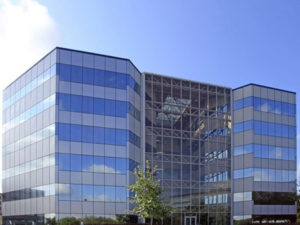By ABERON VOLTAIRE PALAÑA, TMT December 16, 2016
THE Singapore-based Methanol Institute (MI) said on Thursday it supports the Philippine government’s efforts to ensure high-quality and safe petroleum products for consumers and their vehicles in the country even as it called for the development of higher-quality, lower-cost, and environmentally beneficial fuel solutions.
The Department of Energy’s Oil Industry Management Bureau (DOE-OIMB) recently conducted inspections of liquid petroleum products in gasoline stations and retail outlets nationwide, to test for the presence of methanol and to ensure compliance with Philippine National Standards (PNS) for fuels.
It was discovered that methanol was being added illegally to gasoline – in concentrations ranging from 1-14 percent — while gasoline was being transported to individual filling stations. It is believed that the illegal blending was being done because methanol is cheaper than gasoline and also has good octane-boosting properties.
“Like all fuels, methanol must be used and handled with care. Methanol is used safely as a transportation fuel in a number of countries, where stakeholders develop methanol-gasoline blends under approved government standards,” MI said in a statement.
MI and its members commit significant resources to ensuring methanol safe handling and use throughout the supply chain. They work closely with their customers and government partners to monitor, track, and ensure proper distribution and use of methanol throughout the supply chain.
MI believes methanol use in the Philippines can benefit consumers through development of higher-quality, lower-cost, and environmentally-beneficial fuel solutions.
Methanol is a liquid chemical that can be derived from natural gas, coal, sustainable biomass, municipal solid waste, and captured carbon dioxide (CO2). Global methanol demand in 2016 is forecast to reach approximately 80 million metric tons (MMT) or 100+ billion liters, of which 7 million tons (8.8 billion liters) is used for blending into gasoline.
Direct methanol fuel blending has increased at an annual growth rate (AGR) of 23 percent between 2009 and 2015, MI said.
According to the group, methanol’s success in transportation fuels has been due to its economically competitive costs, octane-enhancing properties, and environmental benefits.
“Millions of drivers fuel their cars with M15 fuel in China, a blend of 15 percent methanol and 85 percent gasoline with co-solvents and corrosion inhibitors. These M15 blends are sold at the pump as regular gasoline for use in the existing fleets of passenger cars. Five Chinese OEMs [original equipment manufacturers]produce methanol-fueled cars, taxis, buses, and light-duty vehicles. Currently, 160,000 vehicles are running on high proportion methanol fuels in China, generally M85 or blend of 85 percent methanol and 15 percent gasoline and M100 (neat methanol),” the group said.
“Incremental costs to modify cars to run on methanol for higher-level blends (i.e.,16-100 percent) are only US$100 per vehicle. Methanol is also used as a cooking fuel and in industrial boilers in China,” it added.
Use of methanol fuels and development of methanol vehicles are also growing outside of China. Israel will introduce an M15 car in 2017, and an M85 car in two years. The European Union allows for up to 3 percent methanol in gasoline, and it is being blended in the UK and Netherlands fuel pools.
Development of government-approved fuel standards and related policies in these and other markets has ensured that methanol can be – and is – used safely and effectively in fuel blends, MI said.
Development, therefore, of Philippine government-approved fuel standards and related policies will also be vital for the safe and effective use of methanol in gasoline blends, the group said.
The Philippines currently imports approximately 130,000 tons of methanol annually for use primarily in the production of biodiesel fuel, of which methanol typically accounts for 10-15 percent of biodiesel content.
MI and the methanol industry look forward to working with DOE-OIMB and related stakeholders to develop opportunities for the local production of renewable methanol, and for methanol to be used safely and effectively in transportation fuels and related chemical and energy applications throughout the Philippines
The group serves as the global trade association for one of the world’s most vibrant and innovative industries.
Founded in 1989, MI represents methanol producers, distributors, and technology providers in every corner of the globe – from its headquarters in Singapore and regional offices in Washington, D.C., Brussels, and Beijing.

